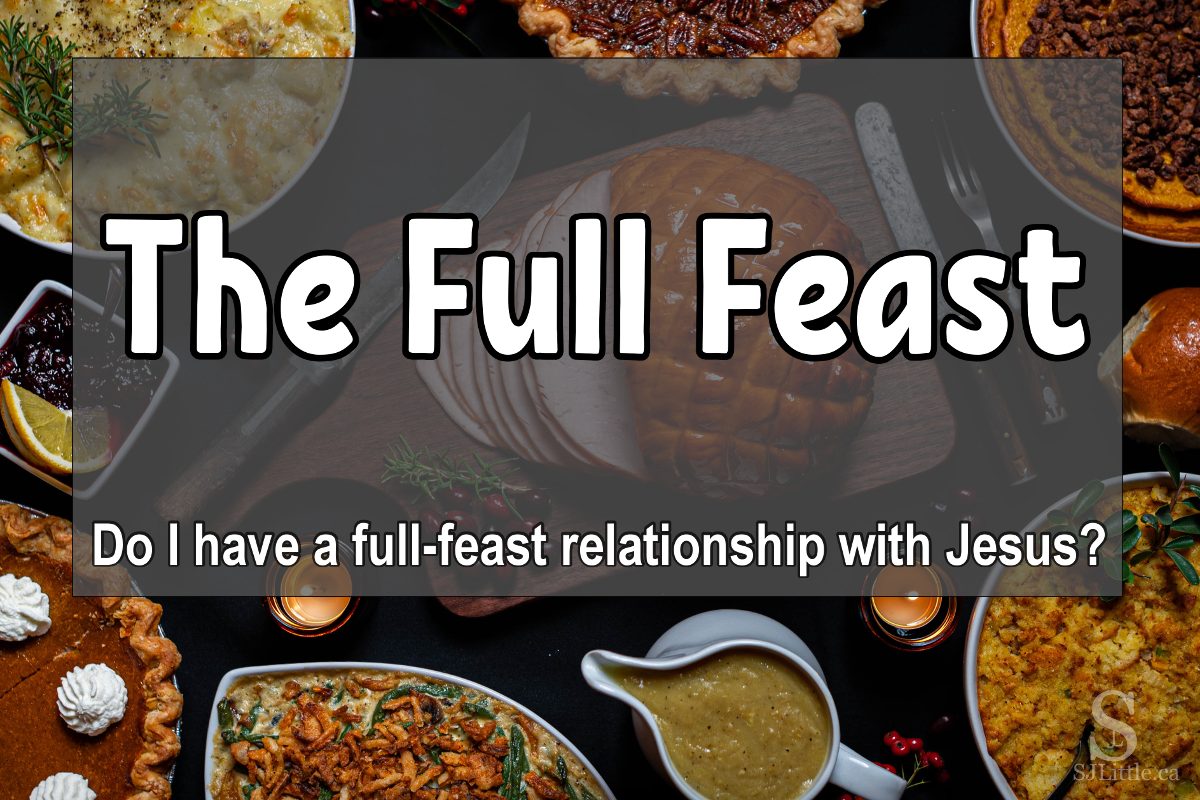
Do I have a full-feast relationship with Jesus?
With Christmas day quickly approaching, many of us have food on our minds. Whether it is the new dessert you want to try, the classic Christmas turkey, or whatever your Christmas food entails, it seems appropriate for this post to talk about food, and the reminder our Christmas dinner can be to pause for a moment and think.
Generally speaking, a large feast has several courses or dishes. These include the appetizer, the main dish, side dishes such as salad, and dessert.
First, we start with the appetizer. It is typically small but tasty. It takes the edge off our hunger, yet if we ended the meal there, most of us would still be hungry.
Then follows the main course and side dishes. The main course is where the sustenance of the meal is. It quenches our appetite, gives us good nutrients, and strengthens us for whatever tasks lay ahead.
Side dishes can take many forms, but for now, I’ll mention only a side dish salad. While this isn’t the case for me, stereotypically there are many people who eat salads begrudgingly. The only reason they eat it is because they know it is good for their health. However, if they could reasonably do so, they’d skip salads all together.
Finally, all the dishes are cleared away, and then comes the part so many of us eagerly await: dessert! Dessert is sweet and delightful. It is sugary and designed to bring a smile to our faces. The reward of dessert, however, is short-lived. Why? Because dessert gives primarily short term energy – a sugary high that soon fades. Indeed, too much dessert adds unwanted weight that makes the rest of life less pleasant. Still, in reasonable proportions, dessert is a delightful and good addition to the meal.
Okay, sure, but what does that have to do with Jesus?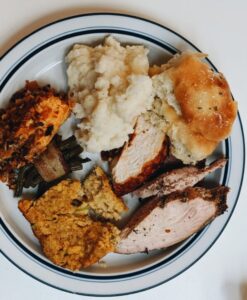
I’m glad you asked.
I’ve found myself thinking recently about how people can have a side dish relationship with Jesus.
Let me explain. Remember what I said about salad side dishes? In a similar way to how some people approach salad side dishes, some people approach God. They go to church and pray begrudgingly as something they have to do, not something they want to do. They acknowledge that Jesus is important, but He holds merely a side dish position in their life.
I thought to myself, I want to have a main dish relationship with Jesus. The main dish is the core of the meal. Likewise, I want my relationship with Jesus to be at the core of my life. That relationship with Jesus is what sustains me and gives me endurance when the going gets hard. Just as how a meal without a main dish would be lacking, likewise, my life without Jesus would have a hole in it.
Yet as I thought about it some more, something didn’t add up. What about the appetizer and dessert? Are they separate from my walk with Jesus?
What in my life do I treat as the appetizer? What is that thing that I run to first? What takes that edge off my hunger… or hurt, or fear, or anxiety? Do I run to Jesus first? Unfortunately, the answer is not always yes.
And what of dessert? What do I do when I just want to have fun? Is Jesus a part of that? Or is that type of fun something He would disapprove of? Is it simply an “okay” thing to do, or is it the best?
Having thought about these questions, I realized that I don’t want to only have a main dish relationship with Jesus. No, I want Jesus to be not only at the core of who I am, but a key part of everything I am and everything I do.
“For from Him, and through Him, and to Him are all things.” Rom. 11:36 NASB
What does that look like practically? There is no one answer. In every season of my life having a full-feast relationship with Jesus might look different. It probably will.
Sometimes it will be serving at church. Sometimes it may mean taking cookies to a hurting neighbour. Sometimes, or perhaps often, it includes washing the dishes and making the meals along with all the other small tasks that make up a day.
Regardless, my relationship with God is to shape every aspect of my life.
“Whatever you do in word or deed, do everything in the name of the Lord Jesus, giving thanks through Him to God the Father.” Col. 3:17 NASB
“Whatever you do, do your work heartily, as for the Lord and not for people…” Col. 3:23 NASB
Whatever exactly it looks like, I am confident that having a full-feast relationship with Jesus is what will bring me the most joy and peace (Ps. 16:11, Ph. 4:6-7). Jesus is the reason that we sing about “joy to the world” and “peace on earth.” His coming made that possible.
Therefore, as I help prepare a Christmas feast, I want to keep seeking to grow toward that full-feast sort of relationship with Jesus. He is worth it.

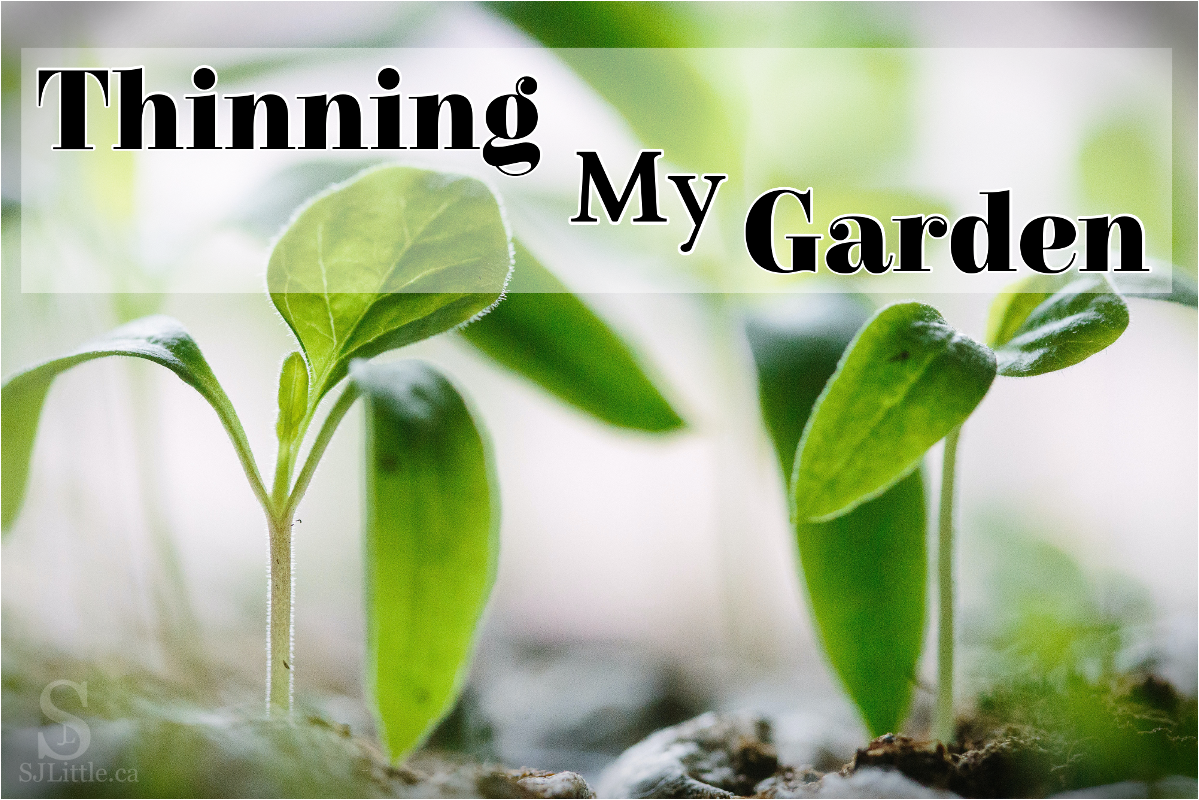

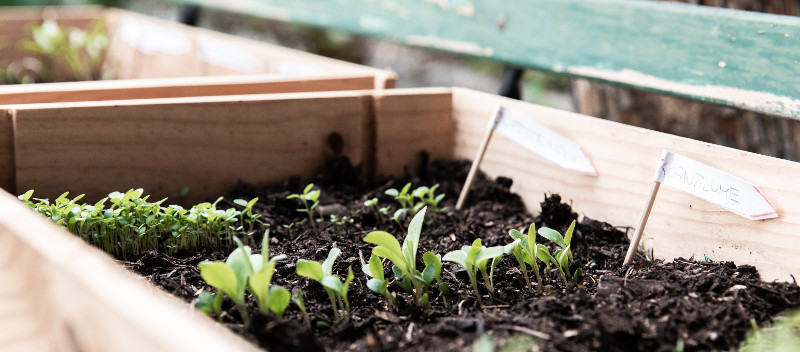
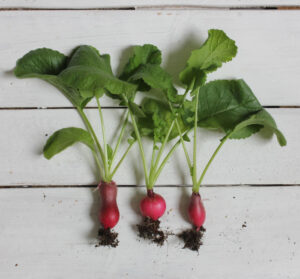



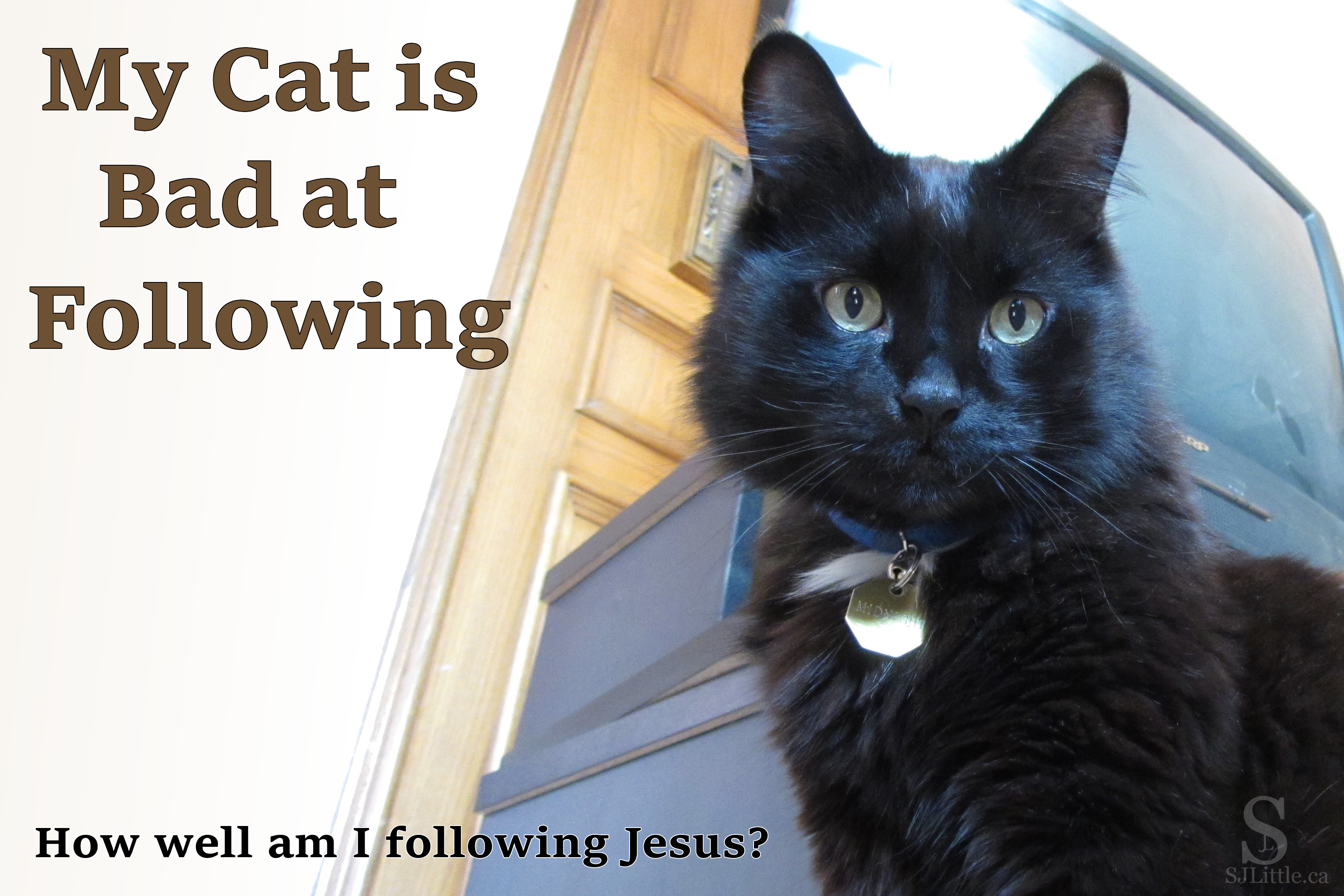
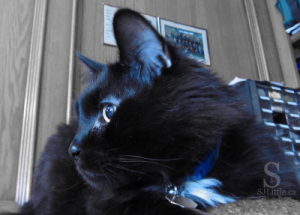 When he was younger, we had his brother as well. Midnight would always let his brother do the talking. I remember watching my siblings try to coax even the tiniest mew out of him with little success. In the years since his brother passed away, however, Midnight has found his voice. Now he often shares his opinions loudly, though at times he merely squeaks.
When he was younger, we had his brother as well. Midnight would always let his brother do the talking. I remember watching my siblings try to coax even the tiniest mew out of him with little success. In the years since his brother passed away, however, Midnight has found his voice. Now he often shares his opinions loudly, though at times he merely squeaks.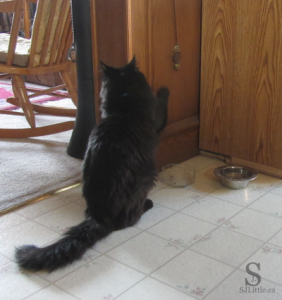
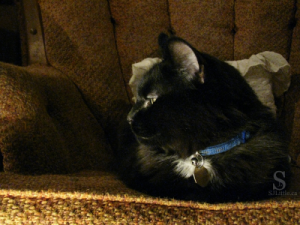
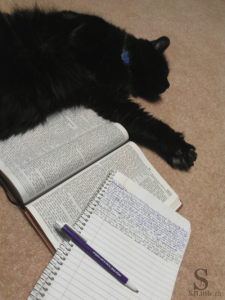



 But how do I get to know Jesus? By reading the Bible I learn the truth of who Jesus is and about His power to save me. Then I must take Him at His Word and believe what He says. I must take time to talk with God, to share my heart with Him, and – through His Word and prayer – to learn to know His heart.
But how do I get to know Jesus? By reading the Bible I learn the truth of who Jesus is and about His power to save me. Then I must take Him at His Word and believe what He says. I must take time to talk with God, to share my heart with Him, and – through His Word and prayer – to learn to know His heart.